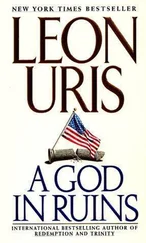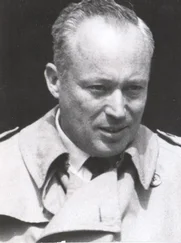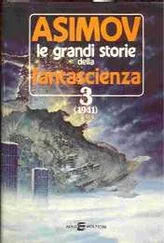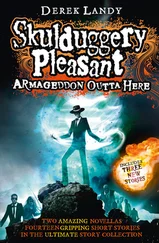Armageddon - Leon Uris
Здесь есть возможность читать онлайн «Armageddon - Leon Uris» весь текст электронной книги совершенно бесплатно (целиком полную версию без сокращений). В некоторых случаях можно слушать аудио, скачать через торрент в формате fb2 и присутствует краткое содержание. Жанр: Старинная литература, на английском языке. Описание произведения, (предисловие) а так же отзывы посетителей доступны на портале библиотеки ЛибКат.
- Название:Leon Uris
- Автор:
- Жанр:
- Год:неизвестен
- ISBN:нет данных
- Рейтинг книги:4 / 5. Голосов: 1
-
Избранное:Добавить в избранное
- Отзывы:
-
Ваша оценка:
- 80
- 1
- 2
- 3
- 4
- 5
Leon Uris: краткое содержание, описание и аннотация
Предлагаем к чтению аннотацию, описание, краткое содержание или предисловие (зависит от того, что написал сам автор книги «Leon Uris»). Если вы не нашли необходимую информацию о книге — напишите в комментариях, мы постараемся отыскать её.
Leon Uris — читать онлайн бесплатно полную книгу (весь текст) целиком
Ниже представлен текст книги, разбитый по страницам. Система сохранения места последней прочитанной страницы, позволяет с удобством читать онлайн бесплатно книгу «Leon Uris», без необходимости каждый раз заново искать на чём Вы остановились. Поставьте закладку, и сможете в любой момент перейти на страницу, на которой закончили чтение.
Интервал:
Закладка:
Chapter Thirty-two
ELEVEN O’CLOCK. THE GERMAN Council assembled. Sloe-eyed Ulrich Falkenstein appeared deceptively serene as he sat at the opposite end of the long table from the commander.
The council sat on both sides of the table, a half dozen of them former inmates of Schwabenwald whose years in the concentration camp had earned them a badge of respectability. The others had somehow kept themselves clear of all Nazi entanglements, remnants of the old Social Democratic Party for the most part. Almost all of them were without previous government experience; five of the council were women, something new in German politics.
“I would like to poll you,” Sean said, “to see if any of you have objection to the reading of the Legend of Rombaden.”
They looked at one another a bit puzzled, each shrugged in turn, then shook his head. No, there were no objections. Ulrich Falkenstein was not taken in; he studied Sean closely knowing the major was up to something. Sean’s eyes were sharper this morning, the brow furrowed more deeply as he scanned their faces. Falkenstein knew how to read this expression.
“Frau Meissner,” Sean said, “you are a native of Rombaden. Just how significant is this event to you?”
“Ach, what a question, Major. Hinterseer Day is our most important holiday. And the Legend of Rombaden is very close to all of us.”
“You grew up with it?”
“You don’t know. Among the actors at the Rombaden Theater the competition for roles in the reading was very great. It was discussed in every home, in the Ratskeller ...even in Princess Allee. For the children, the legend was performed in the puppet theater. As a schoolgirl, the mark of my accomplishments was the memorizing of new passages.”
And then, one by one, they attested to the integral part of their lives that the legend played and they praised the stature of Hinterseer and their pride in him.
Professor Hans Moltke was the intellectual of the council. He had been a teacher of German Literature until the Nazis drove him from the schools. Moltke kept himself and his family alive by losing his former identity and becoming a bank clerk during the Nazi era. “The poem,” he said, “certainly must be considered among a few dozen of the world’s masterpieces from the standpoint of pure literature, pure verse. Secondarily, it has attained extraordinary meaning to the people of this district. Hinterseer is Rombaden’s greatest son ... the link with immortality ... this means provincial pride. Moreover, the reading of the legend signifies the coming of summer. The people know they will again take trips to the forest and commune with nature. The legend brings them close to nature. As you know, Major O’Sullivan, we Germans have an uncommon love of the forest.”
“I am aware of that,” Sean said. Then he turned to Hoffman, the deputy with the broken back who now arranged the rendezvous with the informers. “Herr Hoffman. You are not from Rombaden. What does the legend mean to you?”
“Why,” he wheezed with enthusiasm at being singled out for a testimony, “every German schoolboy knows the legend. It stands with the masterpieces of Schiller, Goethe, and ...Heine.” Although a concentration-camp inmate, Hoffman stumbled on the last name ... a Jew.
“And you, Herr Maas. Why do you suppose the Nazis allowed the legend to be read?”
“Why not, Major? It is not a political poem and it is highly Germanic in nature.”
Ulrich Falkenstein listened with utter fascination as one by one they committed themselves without the slightest idea of what O’Sullivan was driving at. Sean opened his marked copy of the Legend of Rombaden.
“Frau Meissner. Would you care to venture what Hinterseer had in mind with the following passage ... ‘citizens of Rombaden, Aryans, shall we allow the sperm of Ernald to mongrelize our race?’”
Frau Meissner was puzzled.
“Well, Frau Meissner ... do you in Rombaden feel yourself Aryans?”
“I ... don’t ... understand ...”
Sean thumbed through a few more pages. “Would any of you ladies or gentlemen care to make an interpretation of the following passage ... ‘You of Rombaden are the chosen children of Wolfram, King of the Gods.’”
Herr Maas began to understand. He dismissed Sean’s question with a wave of his hand. “It is merely a way of saying that Rombaden is a fine city. All cities think of themselves as the best. Even in the United States there is that competition between cities.”
“Fine, Herr Maas ... then, how about this. ‘I promise you a death, a moment of divine exaltation ... this is the warrior’s death ... this is the moment of fulfillment ... the instant your life passes from his body for the fatherland he will know ecstasy beyond ecstasy.’”
Brows wrinkled.
Sean read on. “Or this one, Herr Maas ... ‘I bathe myself in the blood of a wild pig, I castrate him, I become a superman among the peoples of the world with his strength and his virility ... forgive me wild pig for I have a mission to rule the sub-humans which infest us.’”
Sean closed the book. He flipped it contemptuously on the table. Everyone had been frightened into silence except for Professor Moltke. He picked up their flagging banner. “But, Major, you find the same type of writing in Greek mythology ... in Norse mythology.”
“I challenge you. The Greek Gods were subtle and had delightful senses of humor and mocked their mortal failings.”
“And the Norwegians and Danes. We base the Ring on their mythology.”
“Yes, but neither the Norwegians nor the Danes take their gods seriously ... you Germans do. In fact, you live out your mythology.”
“I do not bend to your point, Major O’Sullivan. You can write in any meaning you wish to write in ... any meaning you seek.”
“And that is my point, Professor Moltke. The Nazis gave meaning to these legends. This poem was Nazi in conception. Adolf Hitler found it and others like it and said ... this is what we are and the German people believed it.”
“But ...” Hoffman protested weakly. “Hinterseer has been dead for nearly two centuries.”
“However, Hoffman, Nazi ideas have been alive in the German people for twenty centuries.”
It was as though they had all been doused with cold water. For many moments a stunned silence prevailed until Herr Bach, the most innocuous member of the council, spoke up mousily. “I always thought there was something wrong with that poem,” he said.
“Then why in the hell didn’t you speak up?” Sean demanded.
“But, Major, one does not speak up against tradition.”
“That is precisely the point. Your tradition demands blind obedience. So long as you are willing to be led like sheep your minds will be captured by another madman. Perhaps in a year or five or twenty some priest will deliver a sermon from the pulpit denouncing the legend or some teacher lead a group of students to protest it ... only then will it be safe to read Hinterseer.”
Falkenstein, who had remained completely out of it now spoke. “You do have tradition in America, do you not, Major?”
“If the President of the United States were to read the Declaration of Independence before the Lincoln Memorial on the Fourth of July there would be someone in America to protest and to question.”
Falkenstein nodded his head, as if to say “touché.” A slight smile crossed his lips as he saw the utter confusion among the council. Here they had believed themselves to be the “good” Germans. The failing then was partly theirs too; there was an iota of Nazi in them all.
“There being no further business before this council I am advising you that I will be at Supreme Headquarters in Frankfurt for the next several days. Captain Duquesne will be in command during my absence. You are dismissed,” he said, eyeing Falkenstein to remain.
Читать дальшеИнтервал:
Закладка:
Похожие книги на «Leon Uris»
Представляем Вашему вниманию похожие книги на «Leon Uris» списком для выбора. Мы отобрали схожую по названию и смыслу литературу в надежде предоставить читателям больше вариантов отыскать новые, интересные, ещё непрочитанные произведения.
Обсуждение, отзывы о книге «Leon Uris» и просто собственные мнения читателей. Оставьте ваши комментарии, напишите, что Вы думаете о произведении, его смысле или главных героях. Укажите что конкретно понравилось, а что нет, и почему Вы так считаете.











